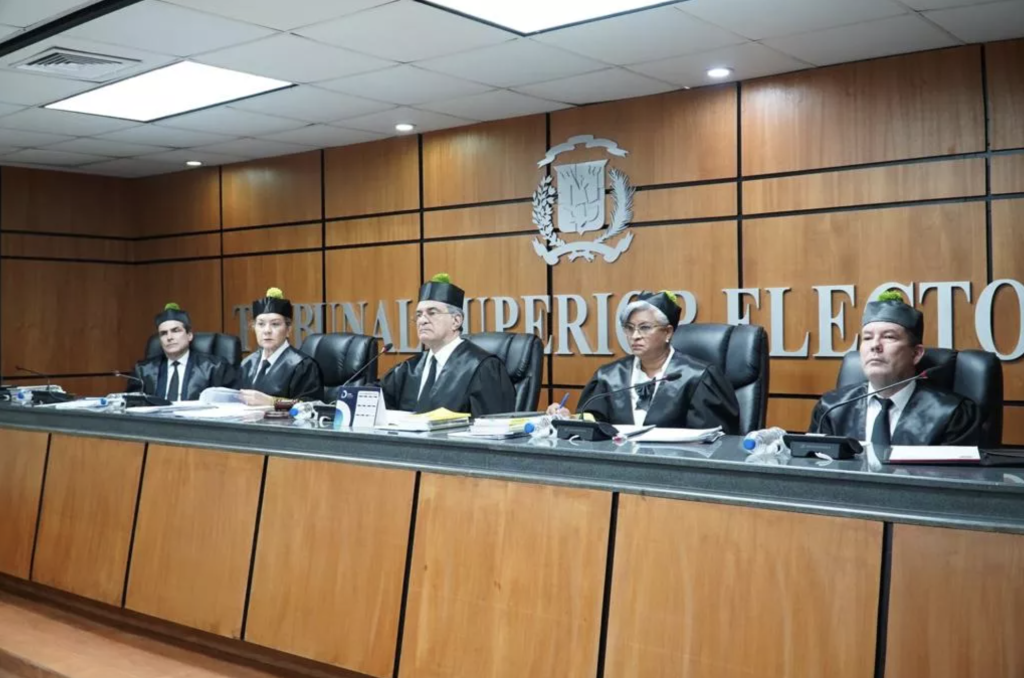
Ruling political party government officials and politicians of the government party and opposition political parties have prematurely announced their intentions to seek their party’s candidacy. The next presidential election will be held in May 2028.
The prohibition for candidates to campaign and parties to act in favor of choosing candidates is already in the Dominican electoral law. Now the Superior Electoral Court (TSE) has ruled rejecting that political parties take shortcuts in their Presidential candidate selection.
In its landmark ruling, the Tribunal Superior Electoral (TSE) prohibits all political parties from selecting or proclaiming presidential candidates before the legally established timeline. The ruling annuls a plan by the opposition party Partido de la Liberación Dominicana (PLD) to hold an early internal consultation, El Dia reports.
The TSE’s decision, in response to a legal challenge against the PLD’s Political Committee Resolution No. 3, sets a binding precedent for all political organizations. The court found that early selection processes—even if presented as non-binding consultations—undermine internal democracy and violate the principle of fairness.
Central to the ruling was the PLD’s proposal to hold a party consultation in early 2026 to identify a preferred presidential candidate ahead of the 2028 general elections. The court determined that the proposal would create undue advantage, as it required participants to commit their support to the eventual winner during the official pre-campaign period in 2027.
Although the PLD argued that other members would still be free to present their candidacies between July and October 2027, the TSE concluded that this early endorsement could deter other contenders. “Such commitments discourage competition and create an inequitable environment, which is contrary to democratic principles,” the ruling stated.
Legal framework reinforced
Citing Article 25, Paragraph 5 of Law 33-18 on Political Parties, the TSE emphasized that no internal process should “favor or privilege specific candidates with information, financial support, or any other resources that may infringe upon the rights of others.”
The court clarified that while the PLD conducted a similar process in 2022, this is the first time the issue has been formally adjudicated. “The fact that no legal challenge was brought at that time does not grant legality to the procedure,” the ruling added.
El Dia reports that the decision sends a strong signal to all political actors, not just the PLD. The court implicitly referenced other parties, such as Fuerza del Pueblo, the runner-up political party in the 2024 presidential election, where there were efforts in late 2024 to proclaim former President Leonel Fernández as a presidential candidate through a “consultative assembly.” That proposal never materialized, but the TSE’s verdict makes clear that any early endorsements—binding or not—could be struck down if challenged.
While the PLD insisted that its 2026 consultation was non-binding and intended to build internal consensus, the TSE rejected this rationale. The court ruled that even informal endorsements exert practical pressure on party members, compromising the neutrality of the internal contest.
“The party’s leadership and grassroots are compelled to rally behind a single pre-candidate outside the pre-campaign window. This places other contenders at a clear disadvantage and violates internal equity,” the ruling said.
The TSE reiterated that while political organizations have the autonomy to strategize and encourage internal dialogue, such actions must remain within the boundaries of electoral law. “Designing consultations that lead to binding commitments before the official pre-electoral period jeopardizes both internal fairness and the neutrality of party institutions,” the court concludes.
Read more in Spanish:
El Dia
24 June 2025

